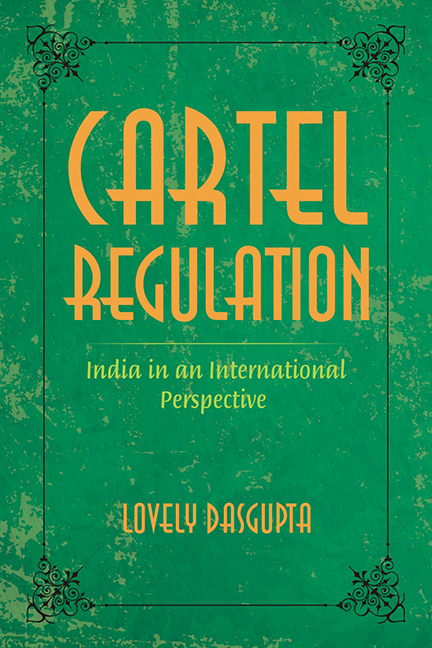Book contents
- Frontmatter
- Contents
- Preface
- Abbreviations
- 1 Introduction
- 2 Cartels: Understanding the Sum and Substance of the Concept
- 3 Cartels and Consumer Interests in the US
- 4 EU, Cartels and Consumer Interests
- 5 India, Cartels and Consumer Interests: The MRTP Phase
- 6 Cartels, Consumer Interests and India Post-MRTP Phase
- Conclusion
- Appendix 1
- Appendix 2
- Bibliography
- Index
6 - Cartels, Consumer Interests and India Post-MRTP Phase
Published online by Cambridge University Press: 29 November 2022
- Frontmatter
- Contents
- Preface
- Abbreviations
- 1 Introduction
- 2 Cartels: Understanding the Sum and Substance of the Concept
- 3 Cartels and Consumer Interests in the US
- 4 EU, Cartels and Consumer Interests
- 5 India, Cartels and Consumer Interests: The MRTP Phase
- 6 Cartels, Consumer Interests and India Post-MRTP Phase
- Conclusion
- Appendix 1
- Appendix 2
- Bibliography
- Index
Summary
Context
From the review of the MRTP Act, 1969 in the previous chapter, it is evident that cartels have been a low priority area of concern in India's first competition law. The preamble of the MRTP Act states that the object of enacting the MRTP Act is to ensure
‘that the operation of the economic system does not result in the concentration of economic power to the common detriment, for the control of monopolies, for the prohibition of monopolistic and restrictive trade practices and for matters connected therewith or incidental thereto’.
The concern of the times was definitely not consumer interests, nor was there per se prohibition of cartels. The incorporation of exemption clauses under section 38 substantiates this line of argument. It was admittedly the idea that cartels per se were not void and would be considered bad only when they fail to justify their conduct through the rule of reason analysis involving the determination of the question, viz., whether the conduct is prejudicial to public interest. The ambiguous term ‘public interest’ failed to explain whether it includes consumer interest or only interest of the industry. In the absence of expertise and resources, the Commission was accused of failing to effectively enforce the anti-cartel provisions. Growing criticism of the Commission was accompanied by change in the economic policies of the country which consequently led the government of India to re-look into the MRTP Act. The outcome was the enactment of the Competition Act 2002. The following is an analyses of the anti-cartel provision of the Act. The discussion however begins with the context which shaped the anti-cartel provisions of the Act. Thereafter, specific provisions will be analysed to understand the changes in approach adopted towards cartels under the Act. Finally the implementation and interpretation of the anti-cartel provisions will be analysed. In the process, the following questions will be answered : (a) Does the Act accommodate the consumer interests in devising its response towards cartels?; b) What approach has been adopted towards cartels, viz., rule of reason or per se; (c) Has the Act distinguished between hard core restraints and ancillary restraints and (d) Will the anti-cartel provisions in the Act have a deterrent effect on cartels?
- Type
- Chapter
- Information
- Cartel RegulationIndia in an International Perspective, pp. 158 - 219Publisher: Foundation BooksPrint publication year: 2014



